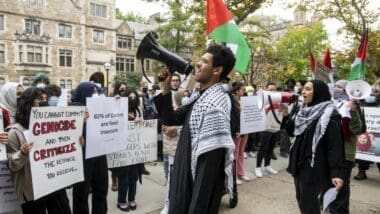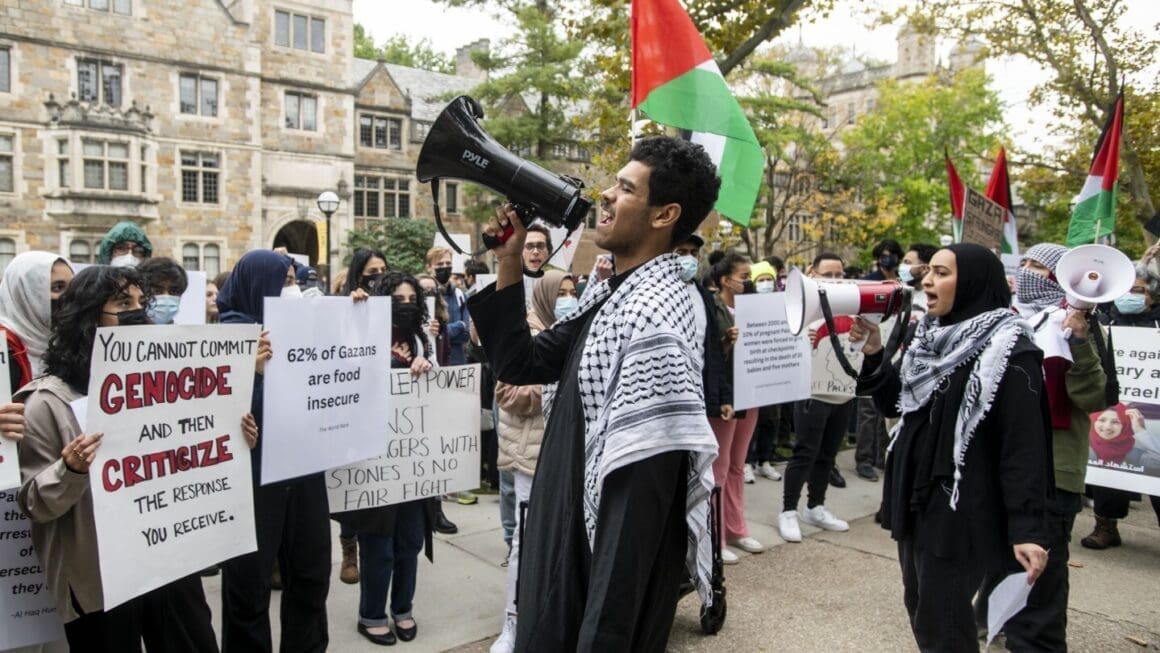The federal government, under pressure from an immigration judge to provide evidence in its case to deport Mahmoud Khalil, a Columbia University activist, has instead submitted a brief memorandum. Signed by Secretary of State Marco Rubio, the document invokes the Trump administration’s authority to expel noncitizens deemed detrimental to U.S. foreign policy interests. The memo, spanning two pages and reviewed by The Associated Press, does not cite any criminal actions by Khalil, a legal permanent U.S. resident and graduate student known for his role in protests relating to Israel and Gaza.
Secretary Rubio’s memo suggests Khalil could face deportation due to his beliefs, indicating that even though Khalil’s activities are “otherwise lawful,” his continued presence might undermine efforts to combat anti-Semitism and protect Jewish students in the U.S. The memo argues that allowing anti-Semitic conduct and disruptive protests could significantly impair these foreign policy goals. This submission came after Judge Jamee Comans directed the government to present its evidence against Khalil prior to a forthcoming hearing on his continued detention.
Khalil’s legal representatives assert that the memo showcases an infringement on Khalil’s free speech, particularly concerning his views on Palestine. They claim that there is no substantial evidence of Khalil posing a threat to the U.S. The Department of Homeland Security, whose spokesperson did not disclose additional evidence, maintains that court dockets are not publicly available.
Arrested in New York on March 8 and detained in Louisiana, Khalil, of Palestinian descent and born in Syria, recently completed his master’s studies at Columbia. He is married to an American citizen expecting their child soon. From jail, Khalil has refuted antisemitism allegations, arguing that the administration is targeting dissenting voices. Despite references to other documents in Rubio’s memo, including a profile of Khalil and communications from Homeland Security, these were not presented in court.
The Trump administration has intensified its efforts against alleged antisemitism on campuses, withdrawing substantial funding from universities. Critics view these actions as a move against free speech. Universities must discipline protesters and implement specified changes to regain funding. Similarly, the U.S. has been revoking the visas of international students who have criticized Israel. At the time of Khalil’s arrest, he was controversially linked to Hamas by Homeland Security, despite the absence of evidence linking him to the group in recent filings.
Impact on Daily Life
The ongoing situation surrounding Mahmoud Khalil underscores significant implications for the broader community, particularly concerning free speech, academic freedom, and immigration policies. For students and academics, the government’s stance might create a climate of fear, potentially stifling open dialogue and limiting the expression of diverse perspectives on global issues within educational institutions. This could impact the quality of education, as campuses strive to balance free speech with compliance to avoid financial penalties.
For the community at large, the implications extend to the perception of governmental authority and its reach over individual rights, especially concerning dissenting opinions. The focus on Palestine-related activism raises questions about the extent of free speech protections and the criteria used for determining what constitutes a threat to national interests. This could influence public opinion on immigration policies and the broader political discourse concerning foreign affairs and civil liberties in the United States.














